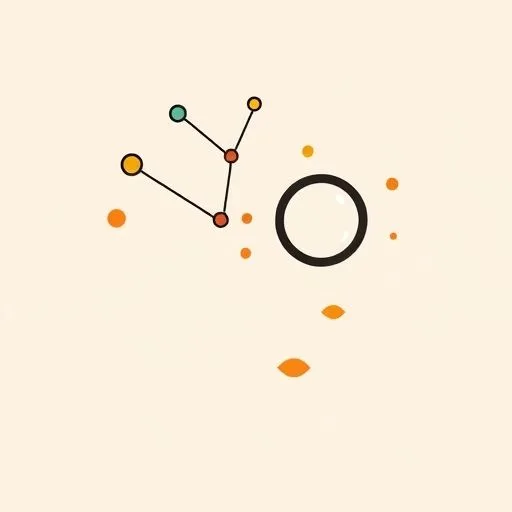
Rushing out the door with your kid’s backpack half-zipped, their snack packed, and their homework done (or not done), all while finishing up that last work email? Been there, done that! Parenting in our tech-saturated world is like being in the middle of a constant revolution.
But what if I told you that the breakthroughs happening in artificial intelligence right now could teach us something profound about how to parent our children? No, I’m not talking about replacing our love with algorithms! Instead, we’re entering what tech leaders call the ‘era of context’—a concept that might just transform our parenting framework in the digital age.
What Is the AI ‘Era of Context’? A Parenting Guide

Picture this: your seven-year-old comes home from school, dumps their backpack on the floor, and immediately starts talking about playground drama with their friends’ latest Minecraft adventures, their teacher’s funny voice during reading time, and the weird mystery meat in the cafeteria lunch. In one breath! They’re throwing you information from multiple contexts, and you need to understand how these pieces connect to make sense of their day.
Right now, AI is experiencing a similar revolution. Tech leaders like Box CEO Aaron Levie explain that the most advanced AI systems are hitting what he calls ‘context limits.’ Essentially, AI needs the right setting, background information, and boundaries to function effectively—just like our kids do!
Think about it: when your child is learning to read, they don’t just decode letters in isolation; they need the context of the story, the pictures, your encouragement, and their previous reading experiences. Without this context, they’re just staring at squiggles on a page. AI works the same way—give it fragmented information without proper context, and you end up with puzzle pieces instead of a picture! This context parenting approach helps us recognize that understanding background information is crucial for development.
This changes everything about how we think about parenting in the digital age, doesn’t it?
How Context Frameworks Transform Parenting Challenges

Remember the time your daughter built that amazing blanket fort in the living room, complete with stuffed animal security guards and a carefully constructed ‘library’ of picture books? As parents, we instinctively understand that providing the right context for creative play—the space, the materials, the freedom—unlocks incredible imagination.
The same principles apply to how our children navigate digital spaces! When we provide context about online relationships, we’re not just setting rules—we’re giving them the framework to make wise choices in the digital world.
Consider these parenting moments through a ‘context lens’:
1. The Homework Battle: Instead of just insisting ‘Do your homework!’ imagine providing context by saying, ‘Remember how proud you felt when you finally understood those math problems? That feeling comes from putting in focused effort now.’ (Especially true during those cozy mornings over kimchi pancakes on lazy Sunday mornings!)
2. Technology Balance: Instead of setting arbitrary screen time limits, provide context by explaining: ‘When we limit screens before dinner, we give our brains time to switch gears and notice the beautiful sunset outside.’
3. Emotional Regulation: During tantrums (oh yes, we’ve all been there!), the magic word isn’t ‘Stop!’ but ‘I understand you’re frustrated because your tower fell down again. Would you like to try building it with these stronger blocks this time?’
This contextual approach transforms challenges into teaching moments where we’re not just reacting to behaviors but shaping understanding. When we adopt a context parenting mindset, we create opportunities for deeper learning and connection.
How to Train Kids for the Context-First World

Here’s the exciting part: understanding context isn’t just about how we parent—it’s about the skills we’re giving our children for their future! In the emerging AI landscape, understanding context will be as fundamental to success as reading and math are today.
So how do we intentionally develop this ‘context intelligence’ in our kids? Get ready for some simple yet revolutionary strategies:
1. Context Detective Game: During conversations or while reading stories together, ask your child to identify the ‘context clues’ that help them understand what’s happening. ‘What makes you think the character is scared?’ or ‘What information helps us understand this math problem?’
2. Connection Conversations: Make it a habit to find connections between different experiences. ‘When we visited the museum last week, you noticed how artists use colors to create feelings. Remember how the blue painting made you feel calm? That’s one way artists use context to send messages.’
3. Digital Context Lessons: As they age, guide them in understanding how context shapes online information. ‘Why do you think someone might share this particular image of the event? What’s missing that would change our understanding?’
4. Problem-Solving Frameworks: When challenges arise, help them identify all the contextual factors before choosing a solution. ‘Before we decide, let’s think about who this affects, what time constraints we have, and what resources are available.’
These aren’t just parenting techniques—they’re life skills that will serve your children in ways we can barely imagine yet!
The context parenting approach helps us prepare them for a world where understanding connections between information will be crucial for success.
How Tech and Family Create Context-Rich Lives

Let me be perfectly clear: technology is not the enemy! Far from it! When used intentionally, tech tools can become powerful context enhancers for our family lives. The key is to make sure the technology supports our human connections rather than replacing them.
Think of it like this: our family is like a beautiful, intricate tapestry. Each person, each experience, each woven thread matters for the complete picture. Technology can help us, the weavers, create richer patterns and stronger connections—if we let it!
Here’s how we’re embracing this in our home (and how you can too):
1. Tech as Contextual Story Enhancer: Instead of passively watching videos together, apps can help us create interactive storytelling sessions where your child becomes part of the narrative. Imagine bedtime stories where your daughter’s name appears in the adventure—immediate engagement! And don’t worry, I’m not talking about complicated setups—just simple apps that bring stories to life.
2. Contextual Reminders That Actually Work: Smart home devices can help create smooth transitions without nagging. ‘It’s time to pack up toys and get ready for dinner!’ coming from a friendly, animated character is somehow much more effective than mom’s voice saying the same thing (I know, I’ve tested this theory extensively at our house!)
3. AI-Enhanced Learning Adventures: When your child shows interest in dinosaurs or space exploration, educational platforms can tailor content to their specific interests and comprehension level. This personalized context keeps learning exciting and relevant.
4. Family Context Keepers: Apps that automatically organize family photos, highlight funny moments from shared experiences, and create visual timelines help us recall the rich context of our family journey together.
The secret sauce here is to view technology as a tool that amplifies our human connection rather than a substitute for real experiences. When tech enhances our shared moments, we win! The context parenting approach reminds us that technology should support our real-world connections, not replace them.
Your Action Plan: Becoming a Context-Aware Parent

Feeling inspired but wondering where to begin? Ready to unleash your inner context-parenting powerhouse? Here’s your actionable game plan that doesn’t require any fancy degree or complex schedule changes:
Week 1: Context Awareness Kickstart
• Each day, identify three moments where you provided context to your child (explicitly or implicitly)
• At dinner, ask everyone to share ‘the context clues’ behind their day’s ups and downs
• Celebrate small wins—did your child understand why you said no to something? That’s context connection!
Week 2: Expanding Your Context Toolkit
• Identify one recurring parenting challenge where adding context could transform the situation
• Create a simple ‘context cue’ card to remind yourself to provide meaningful background information
• Practice ‘context detective’ questions like ‘What information do you think is missing here?’
Week 3: Context Confidence Building
• Share your context-parenting wins with your village of other parents—let’s inspire each other!
• Research one new technology tool that might enhance your family’s shared experiences
• Plan one context-rich family activity where meaning comes before logistics
Remember, beautiful humans, parenting in the era of context isn’t about perfection—it’s about presence. It’s about recognizing that the little details we share, the frameworks we provide, and the connections we nurture are exactly what our children need to navigate this rapidly changing world with confidence and joy.
Our context parenting journey isn’t about raising perfect children—it’s about raising conscious, connected humans who can understand their place in the world.
So here’s to raising contextually-aware kids who can understand the world and make their unique mark within it! The revolution begins with us!
And can we talk about how 완전 amazing it is when my daughter points out context clues in her picture books and beams with understanding—that pride is something no algorithm could ever replicate!
Source: Box CEO Aaron Levie on AI’s ‘era of context’ | TechCrunch, TechCrunch, 2025/09/11
